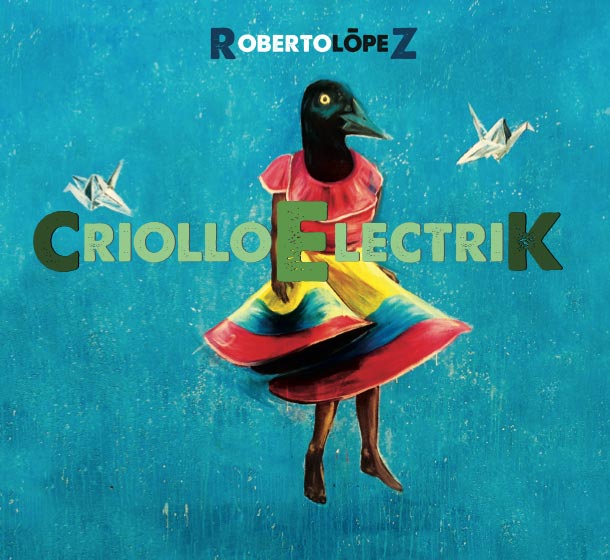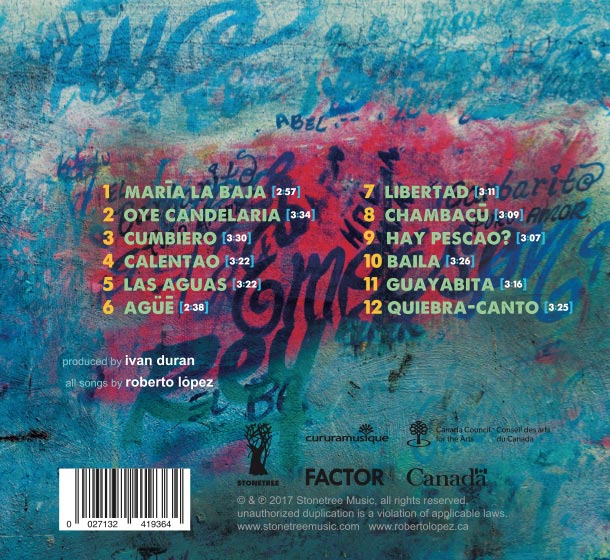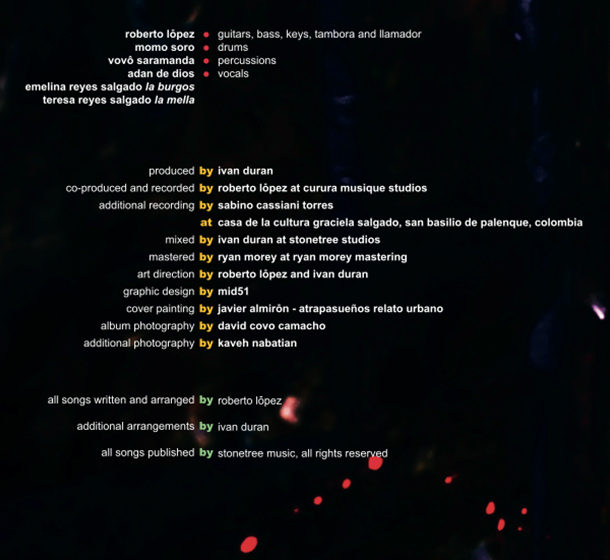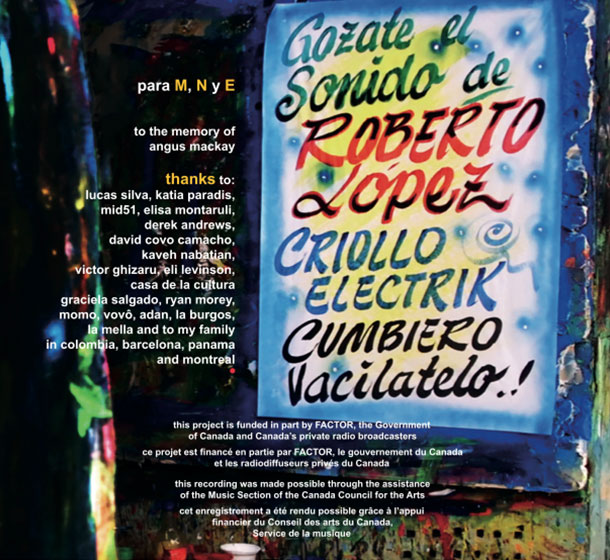Criollo Electrik
2017 CRIOLLO ELECTRIK (stonetree records)
★★★★ "Abraxas from Montreal... a major update."
Alain Brunet - LA PRESSE
★★★★ "... an album that has a very strong grip."
Yves Bernard - LE DEVOIR
"…an exciting project, Roberto Lopez – completely revamped"
Ralph Boncy – VOIR
"... musical Creole from a Colombian Montrealer."
Ici musique - RADIO Canada
"... an awesome album."
Sonideros - RADIO 3 (Spain)
"…a gem of an instrumental album that draws on early influences while teleporting them to today’s global music leading edge."
Calcopyrite - World Beat Canada
About Criollo Electrik
Remember those big, beautiful stereo receivers from the 1970s? Well, some of them had a mic input in that shiny metal faceplate. When Roberto Lopez was a teenager growing up in Bogotá, he would plug his black Les Paul knockoff guitar into his parents stereo and crank it up until he got that sweet distortion that he was after. Much to his parents’ dismay of course.
When the Montreal-based guitarist set out to make his new album, Criollo Electrik, he went searching for that childhood sound. “I was a big fan of the boogaloo growing up – you know, this mix of Motown, soul, and Latin grooves”, Lopez explains. “With this album I wanted to come back to my roots, to that kid putting his dad’s stereo into overdrive. ”
The project may have been inspired by nostalgia but the finished product is perhaps Lopez’ most forward-thinking music to date. Aptly named, Criollo Electrik is an electrified – and electrifying – creole, a musical language of mixed ancestry. With a Brazilian percussionist and an Ivorian drummer playing percussive parts written by a Colombian, it seems only appropriate that this electric creole was recorded in the bilingual melting pot of Montreal. The record is infused with the flavours of champeta, the Colombian take on African music which spread through the picó, or the Colombian sound system. Lesser known than its Jamaican counterpart – but just as vital to street culture and a link to heritage – the brightly painted picos were at the heart of working class parties where, in the 70s, the DJs spun rare records from the Caribbean along with soukous, Afrobeat, and highlife LPs imported from West Africa.
- Nominated for Instrumental Solo Artist of the Year at the Canadian Folk Music Awards 2017
- Nominated for World Album of the Year at the ADISQ 2017 (Quebec Music Industry Awards)

 Français
Français


